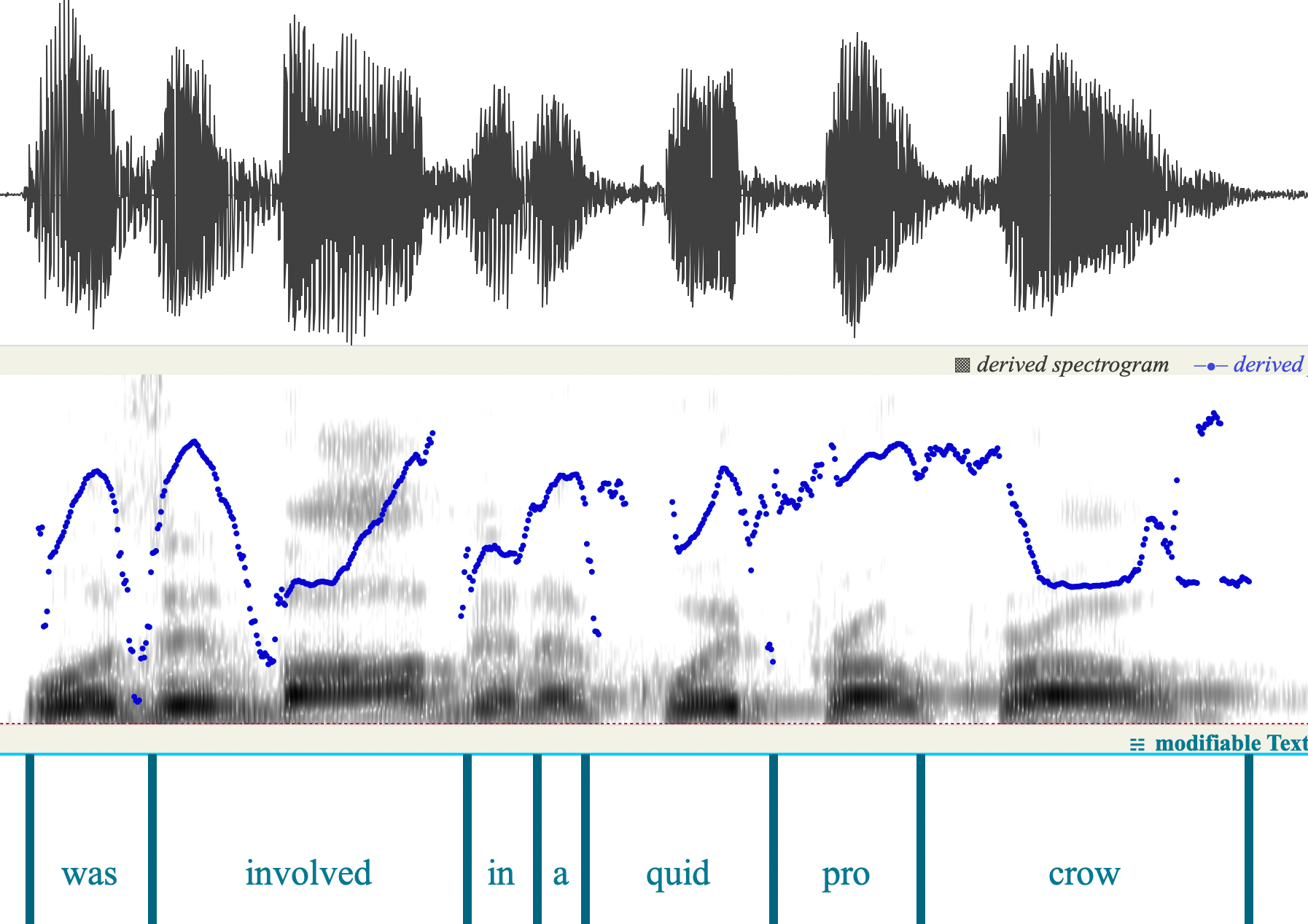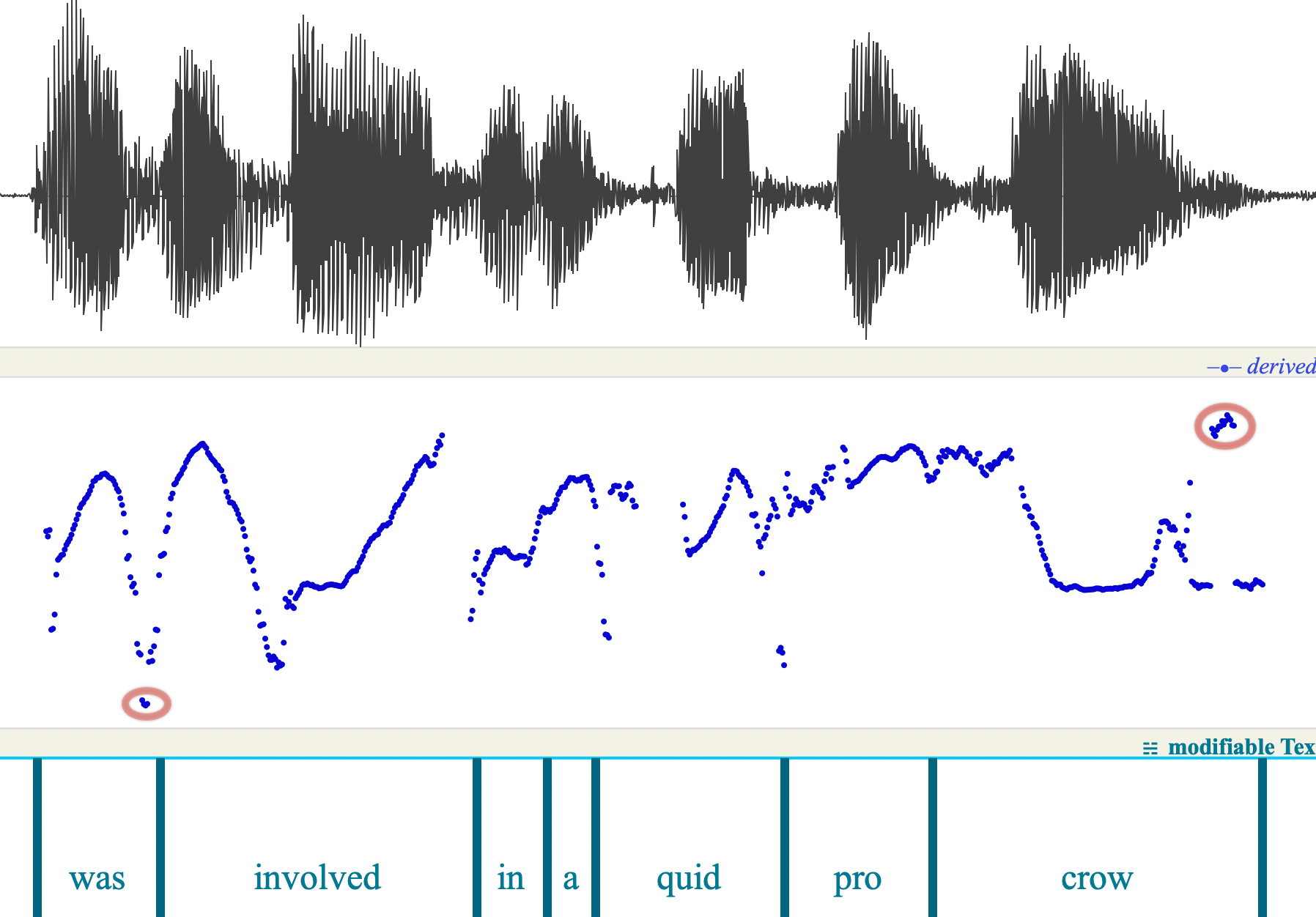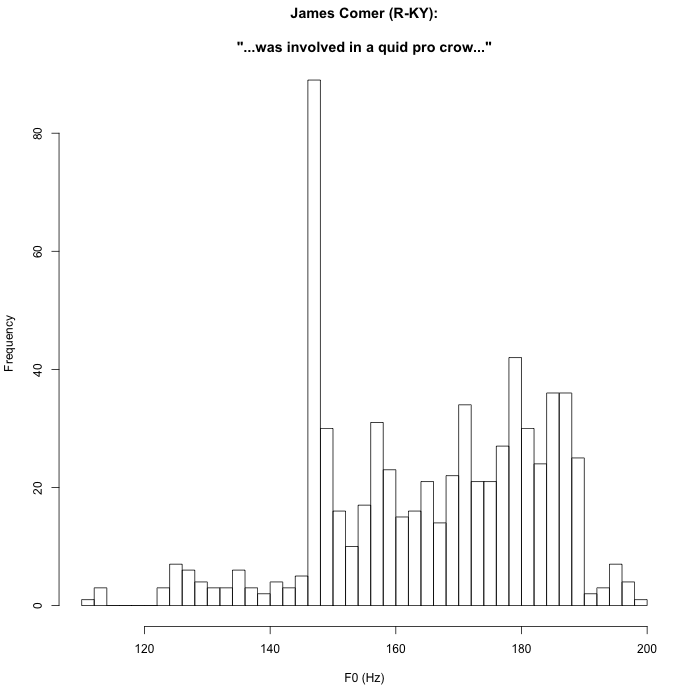"Quid pro crow"
« previous post | next post »
In Maria Bartiromo's recent interview with James Comer (R-KY), there's an interesting speech error — "quid pro crow" for "quid pro quo":
This being Language Log rather than Making Fun Of Politicians Log, I'm going to start by assuming that this was a slip of the tongue rather than an inadequate command of legal Latin — specifically, a speech error involving perseveration of the consonant+/r/ onset cluster from "pro" to "quo":
It's possible that there was some Freudian priming of the slip, based on reverberations of Dahlia Lithwick and Mark Stern's clever 4/13/2023 Slate title "Quid Pro Crow", about the relationship of Clarence Thomas and Harlan Crow.
But in any case, once attention is drawn to this phrase, it has some phonetic properties worth highlighting.
To start with, it's a nice example of pre-boundary lengthening — crow is more than twice as long as pro:
Another phonetic point is this phrase's illustration of why minimum and maximum values of fundamental frequency are (always) artifacts, or at least profoundly uninteresting numbers. Even after careful instructions to Praat to choose minimum and maximum f0 estimation values suitable for Comer's voice in this interview, the minimum and maximum values in this phrase represent scattered points caused by (imperceptible) interactions between laryngeal oscillation and vocal tract closures:
And a histogram of F0 estimates also suggests why the mean value is generally not a great summary statistic:
Then there's the whole question of how to characterize the phrase's intonational pattern — but that's a topic for another time.



Eric said,
May 16, 2023 @ 10:20 am
CAW CAW CAW!
cameron said,
May 16, 2023 @ 1:16 pm
in a perfect world, he'd have said "squid pro crow"
Michael said,
May 16, 2023 @ 1:41 pm
I find it virtually impossible to say "quid pro quo" without slowing, even pausing for a second or two, before saying "quo." "Quid pro crow," or worse "Crid pro crow," flow out much more naturally.
Seth said,
May 16, 2023 @ 2:09 pm
@cameron "squid roe crow" ? "squid doe crow" ?
Benjamin E. Orsatti said,
May 17, 2023 @ 7:31 am
Now, I'm no rocket surgeon, but isn't the phenomenon perfectly explainable by the previous word's [ASPIRATED CONSONANT->LIQUID->VOWEL] structure "imprinting" on the succeeding word's [ASPIRATED CONSONANT->"W"->VOWEL] structure?
— I went looking for a parapraxis, but only found one of ém.
MarkB said,
May 17, 2023 @ 2:25 pm
'It's possible that there was some Freudian priming of the slip, based on reverberations of Dahlia Lithwick and Mark Stern's clever 4/13/2023 Slate title "Quid Pro Crow" '
Because Comer is expected to read La Dahlia? I doubt reverberations from Slate reach Comer in his lifetime. Of course, in an echo chamber one might think so.
[(myl) No, because there has been a lot of media coverage of the Crow/Thomas relationship, and doubtless many Capitol Hill conversations as well, in which the phrase "Quid pro quo" would have been both explicit and implicit.]
Quid Pro Crow – Cyber Geeks Global said,
May 18, 2023 @ 3:01 pm
[…] Comments…Read More […]
Victor Mair said,
May 20, 2023 @ 6:53 am
Remember this?
=====
"Christian Dior's 'Quiproquo' cocktail dress and the florid rhubarb prescription written on it"
https://languagelog.ldc.upenn.edu/nll/?p=19331
=====
I will write another post on the linguistics of "rhubarb" in the near (I hope) future.